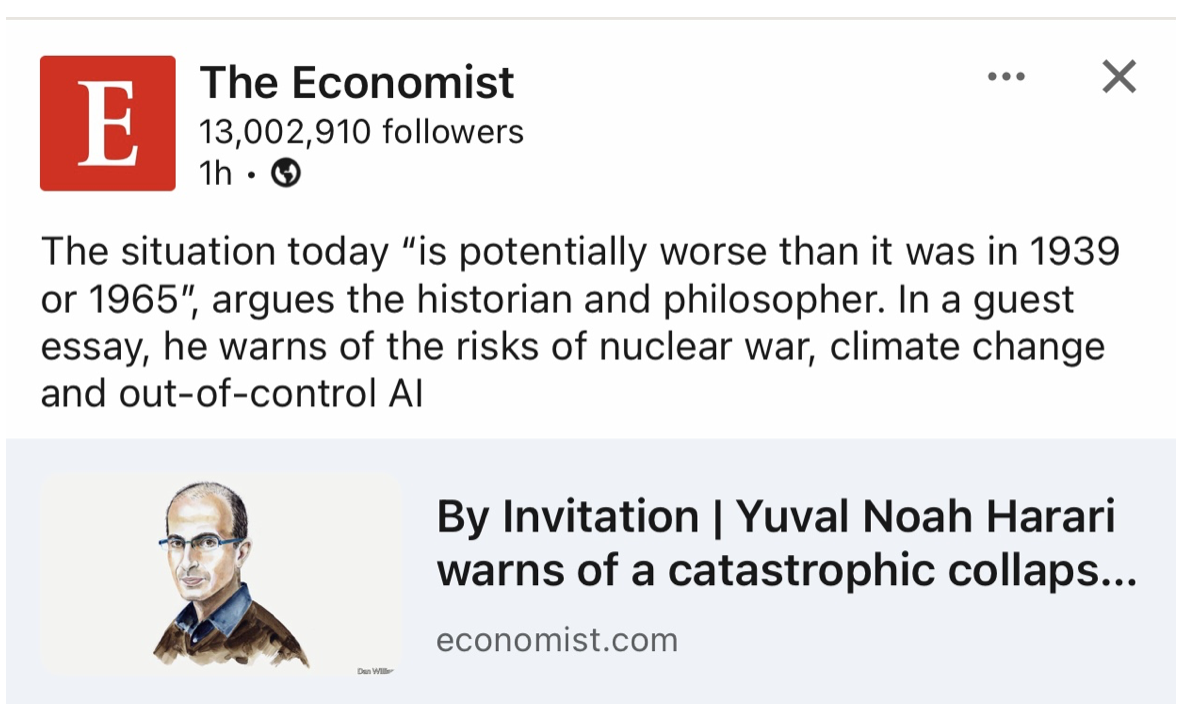June 7, 2024

(THE AI GENIE IS OUT OF THE BOTTLE – ARE HUMAN RIGHTS AT STAKE?)
June 7, 2024
Hello everyone,
A recent report from the UN is shining a spotlight on the risks of generative AI. The report explores 10 human rights that generative AI may adversely impact.
The paper says that “the most significant harms to people related to generative AI are in fact impacts on internationally agreed human rights” and lays out several examples for each of the 10 human rights it explores: Freedom from Physical and Psychological Harm; Right to Equality Before the Law and Protection against Discrimination; Right to Privacy; Right to Own Property; Freedom of Thought, Religion, Conscience, and Opinion; Freedom of Expression and Access to Information; Right to Take Part in Public Affairs; Right to Work and to Gain a Living; Rights of the Child; and Rights to Culture, Art, and Science.
There is already talk about generative AI’s impact on creative professions. This report discusses this issue and how it can be used to create harmful content from political disinformation to nonconsensual pornography and CSAM (child sexual abuse material). Over 50 examples in the report illustrate the potential human rights violations, which creates an alarming picture of what’s at stake as companies rush to develop, deploy, and commercialize AI.
The report also asserts that generative AI is both altering the current scope of existing human rights risks associated with digital technologies and has unique characteristics that are giving rise to new types of human rights risks. For instance, the use of generative AI for armed conflict and the potential for multiple generative AI models to be fused together into larger single-layer systems that could autonomously disseminate huge quantities of disinformation.
Of some concern is the idea that “other potential risks are still emerging and, in the future, may represent some of the most serious threats to human rights linked to generative AI.
One particular risk the report brings to light surrounds the Rights of the Child. “Generative AI models may affect or limit children’s cognitive or behavioral development where there is over-reliance on these models’ outputs, for example when children use these tools as a substitute for learning in educational settings. These use cases may also cause children to unknowingly adopt incorrect or biased understandings of historical events, societal trends, etc.”
The report also notes that children are especially susceptible to human rights harms linked to generative AI because they are less capable of discerning between synthetic content and genuine content, identifying inaccurate information, and understanding they’re interacting with a machine.
Let’s think of children and social media for a moment. They were given daily access to social media without virtually any transparency or research into how it might impact their development or mental well-being. It’s well known that children have been harmed by social media companies’ apparent lack of guardrails surrounding the technology. This issue came to light earlier this year when the CEOs of Meta, Snapchat, TikTok, X, and Discord testified before Congress in a heated hearing that looked at social media’s role in child exploitation as well as its contribution to addiction, suicide, eating disorders, unrealistic beauty standards, bullying, and sexual abuse. It’s been shown that children were treated as guinea pigs on Big Tech’s social media platforms; repeating those mistakes with generative AI would be shameful.
The Right to Work and to Gain a Living was also covered in the report and showed interesting findings. Of note was the fact that economics, labor markets, and daily work practices could be drastically altered by Generative AI. The future may include employers using generative AI to monitor workers, and the idea that workers engaged in labor disputes with employers may be at heightened risk of being replaced with generative AI tools.
How we implement the technology will be important as well as the guardrails – or lack thereof – we put around it. Perhaps the most significant takeaway is the understanding that Generative AI as a technology won’t commit these human rights violations independently, but rather powerful humans acting recklessly to prioritize profit and dominance will.
The May Monthly Zoom Meeting recording will be sent out next week.
QI CORNER
Cheers,
Jacquie






